QuestionI have two 7 month old russian tortoises. I got them from a family Fred who has been raising tortoise for 29 years. They have both been wealthy and eating well. I noticed that one if them is making a squeeking noise and scratching his face. I think when I looked closet, I saw a bubble from his nose but I'm not sure. They have a long Tupperware container (fits a Christmas tree). They have untreated wood bedding. I don't know the exact name if it but it comes highly recommended. They have a mixture of greens daily, with calcium powder few times a week. I don't have a thermometer in there which I will be getting tomorrow. They have a custom box they sleep in. They get daylight and nightlight. They have a water dish that they sometimes soak in. I have him a soak today and am wondering if he got too cold.
AnswerHi Samantha,
With the substrate you're using and the symptoms, I'd suspect dehydration, which can mimic the symptoms of RI. Hatchling and juvenile Russians dehydrate very easily unless there is quite a bit of moisture n their enclosure, because basking lights are very drying. I'd switch the substrate to a 50/50 mix of coir (Bed-a-Beast or Ecoearth) mixed with playsand. You need to keep it a little damp all the way through, all the time. This will not cause RI or shell rot (I've raised a lot of hatchlings on it), but it will go a long way toward preventing dehydration. Keep an eye on their urates (the white part of pee)--if they become dry and gritty at all, you need to increase moisture or soaks (or both). Urates should be creamy or liquidy. In my experience, Russians don't get respiratory infections very easily unless they're new imports, but they do develop bladder stones from dehydration, so the moisture is important.
They don't need a light at night, nor do they need heat unless your house temperatures drop below 50. They do better with a night temperature drop, and even hatchlings do fine with cool night temperatures. You didn't mention if you had a UVB bulb, though, and that's very important. When you check your temperatures, you want a basking temp (on the substrate, not air temperature) of 88-90 degrees, and then cooler areas around 70. They need to be able to warm up, but if they become too warm they won't eat.

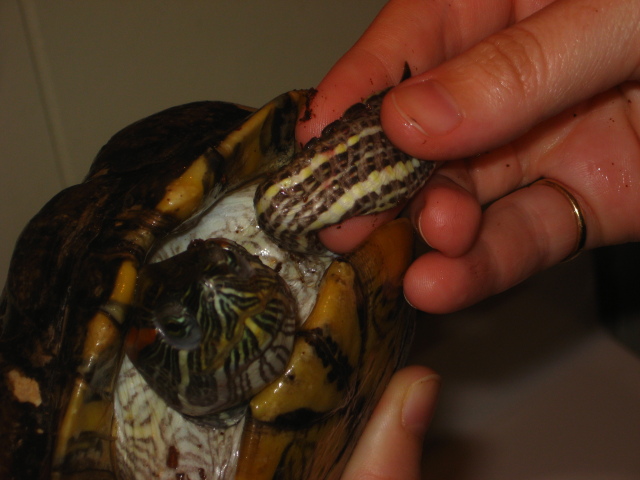 red eared slider shell rot
Question
turtles leg
We have a red eared slider, about
red eared slider shell rot
Question
turtles leg
We have a red eared slider, about
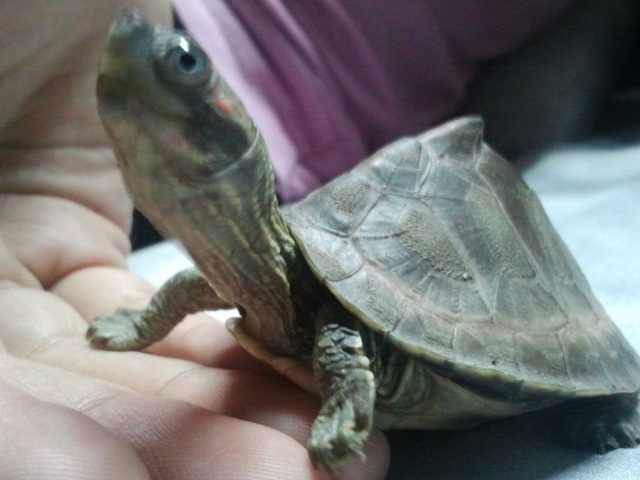 spieces of my turtle
Question
my turtle
jeannie i just want to ask i
spieces of my turtle
Question
my turtle
jeannie i just want to ask i
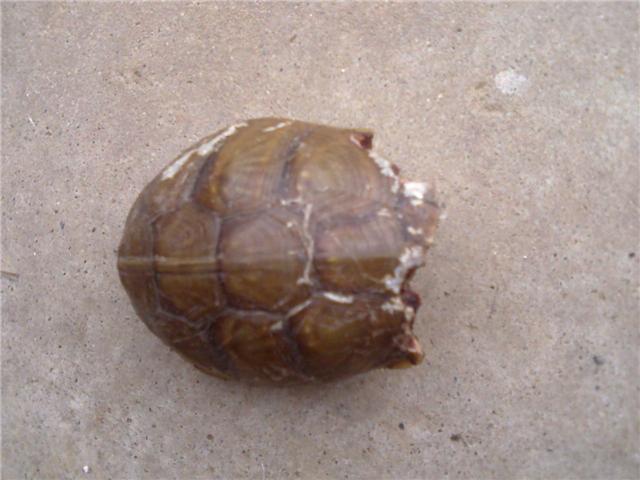 Box turtle-shell chewed up by dogs. Please help!
Question
Box Turle
My boyfriend just rescued a box turt
Box turtle-shell chewed up by dogs. Please help!
Question
Box Turle
My boyfriend just rescued a box turt
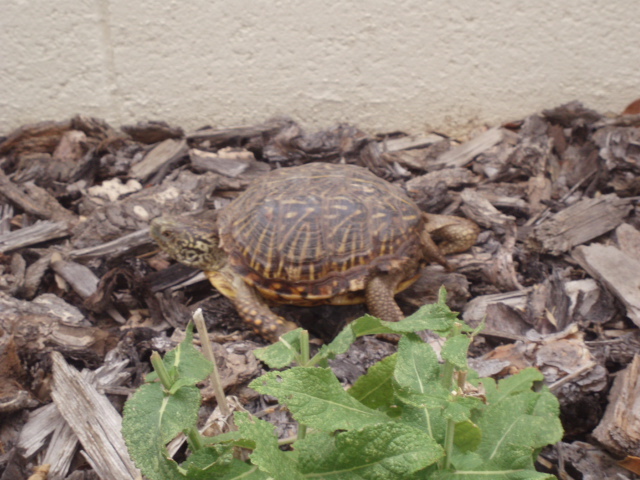 female ornate
Question
George (we thought she
Jeannie- We found a fem
female ornate
Question
George (we thought she
Jeannie- We found a fem
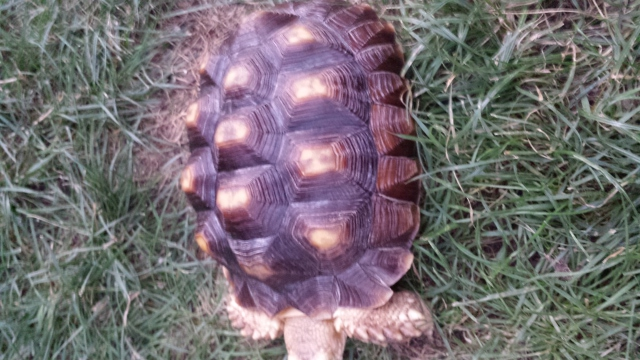 Tortoise identification
Question
Shell Belly
Hi,I think my tortois
Tortoise identification
Question
Shell Belly
Hi,I think my tortois